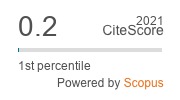Numerical and Experimental Analysis of Combustion Characteristics of Gas Turbine Engines
DOI:
https://doi.org/10.17762/msea.v70i1.2504Abstract
Advanced computational fluid dynamics (CFD) methods were used to carry out the numerical analysis. It was created a three-dimensional CFD model to represent the intricate flow and combustion processes inside the gas turbine engine. Fuel injection, combustion kinetics, and the effects of turbulence were all taken into account by the model. In order to analyse several combustion factors, such as temperature distribution, species concentrations, and flame propagation, numerical simulations were run.Experimentation was done in order to verify the numerical results and understand the combustion properties better. To simulate the operational circumstances of a gas turbine engine, a test setup was created. Measurements of combustion parameters, including pressure, temperature, and emissions, were made and compared to the numerical forecasts. The computational model might then be verified and improved as a result.The findings of this study offer insightful information about how gas turbine engines behave during combustion. The temperature distribution, species concentrations, and flame propagation within the engine were all correctly predicted by the numerical models. The experimental observations showed good agreement with the expected values, confirming the accuracy of the numerical model. This thorough examination aids in the comprehension of gas turbine engine combustion processes and can be used as a foundation for future design enhancements and performance enhancements.




